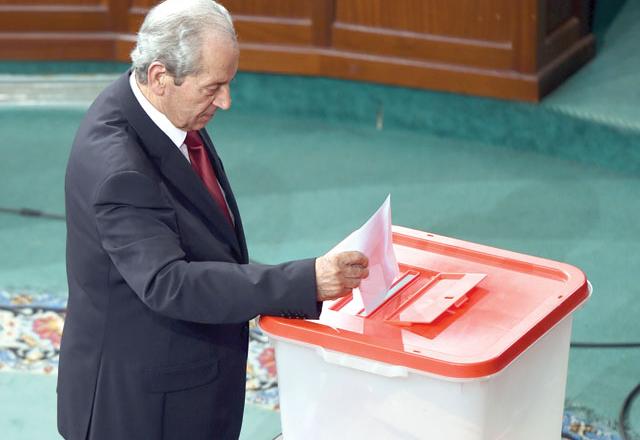You are here
Tunisia elections probably to be held in November — election chief
By Reuters - May 03,2014 - Last updated at May 03,2014
TUNIS — Tunisia’s next presidential and parliamentary elections will probably be held in the second half of November, the election agency chief said on Saturday, about polls that will mark the country’s final step towards full democracy.
Tunisia’s often turbulent political transition began after a 2011 uprising that ousted autocrat Zine Al Abidine Ben Ali and inspired the “Arab Spring” revolutions across the region.
Since then, Tunisia has been led by a caretaker government and has adopted a new constitution. But the transition process has been threatened by a crisis between ruling Islamists and secular opposition parties that has at times turned violent.
Islamist party Ennahda rose to power in the first election after the uprising, held in October 2011, and Tunisia, one of the Arab world’s most secular countries, has struggled with growing divisions over the role of Islam in politics.
Chafik Sarsar, head of the Instance Superieure Independante pour les Elections (ISIE), told Reuters he would propose next week that the elections be held November 16 or 23.
“There is a strong probability that the elections will be the third or fourth Sunday of November in the case that the presidential and parliamentary votes are together,” he said.
Tunisian lawmakers are due to meet next week to decide whether or not to hold the two votes on the same day.
“We don’t really have much choice because time is running out,” Sarsar said, referring to a previous agreement to hold the elections this year.
He said a less likely option would be to split the two elections and to hold the first in the last week of October.
“The final date should be finalised in a week or so after the political parties hold their national dialogue over the next week,” he said.
Tunisia has mostly managed to overcome post-revolt turmoil, unlike Libya, Yemen and Egypt which still struggle with unrest and political instability after toppling their leaders in 2011.
Ennahda and rivals Nidaa Tounes alliance managed to compromise to pass the constitution and finish a new electoral law which cleared the way for ISIE to set a date for elections — the second since the 2011 uprising.
Those two political blocks are expected to lead in the election. Ennahda won most seats in the first vote after Ben Ali’s fall, but Nidaa Tounes has since become a rallying point for opposition parties.
Sarsar said the vote’s transparency would be guaranteed by the new electoral law and by more than 1,000 international observers who had been invited to monitor the ballot.
With its political transition well on track, Tunisia’s government has turned its attention to two major challenges: taking on high public spending, and battling Islamist militants who threaten attacks.
But the electoral chief said Tunisian authorities were prepared to counter any increased risk of violence during the elections.
“There are risks that are more elevated this time,” he said. “One can see in Egypt, Libya and Iraq the attacks against polling stations, so we have to avoid that risk.”
Related Articles
Tunisia’s election authority has proposed a parliamentary vote on October 26 and the first round of presidential polls a month later, marking the final step towards full democracy in the cradle of the 2011 Arab Spring uprisings.
Tunisia’s first parliament since the 2011 revolution on Thursday elected veteran politician Mohamed Ennaceur, 80, of anti-Islamist party Nidaa Tounes as house speaker.
Moncef Marzouki and Beji Caid Essebsi are to face off on December 21 in Tunisia's second round of presidential voting to decide who leads the nation that sparked the Arab Spring.












